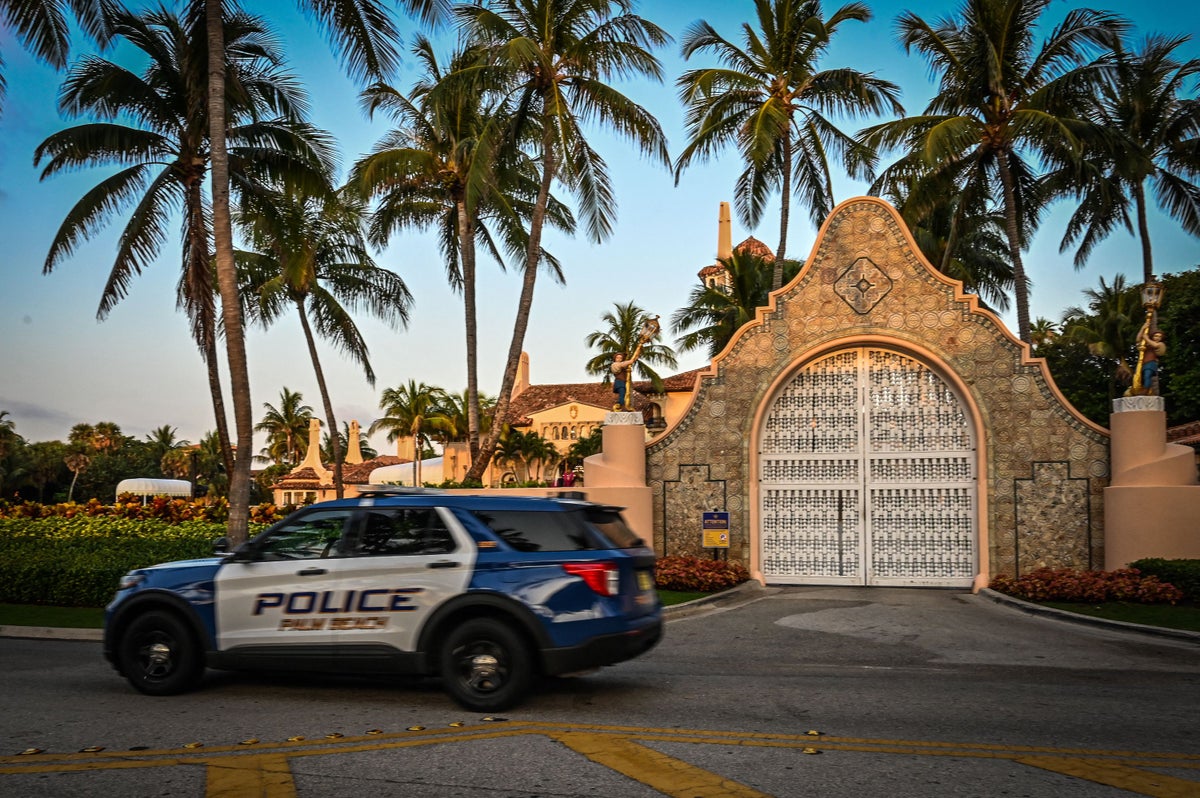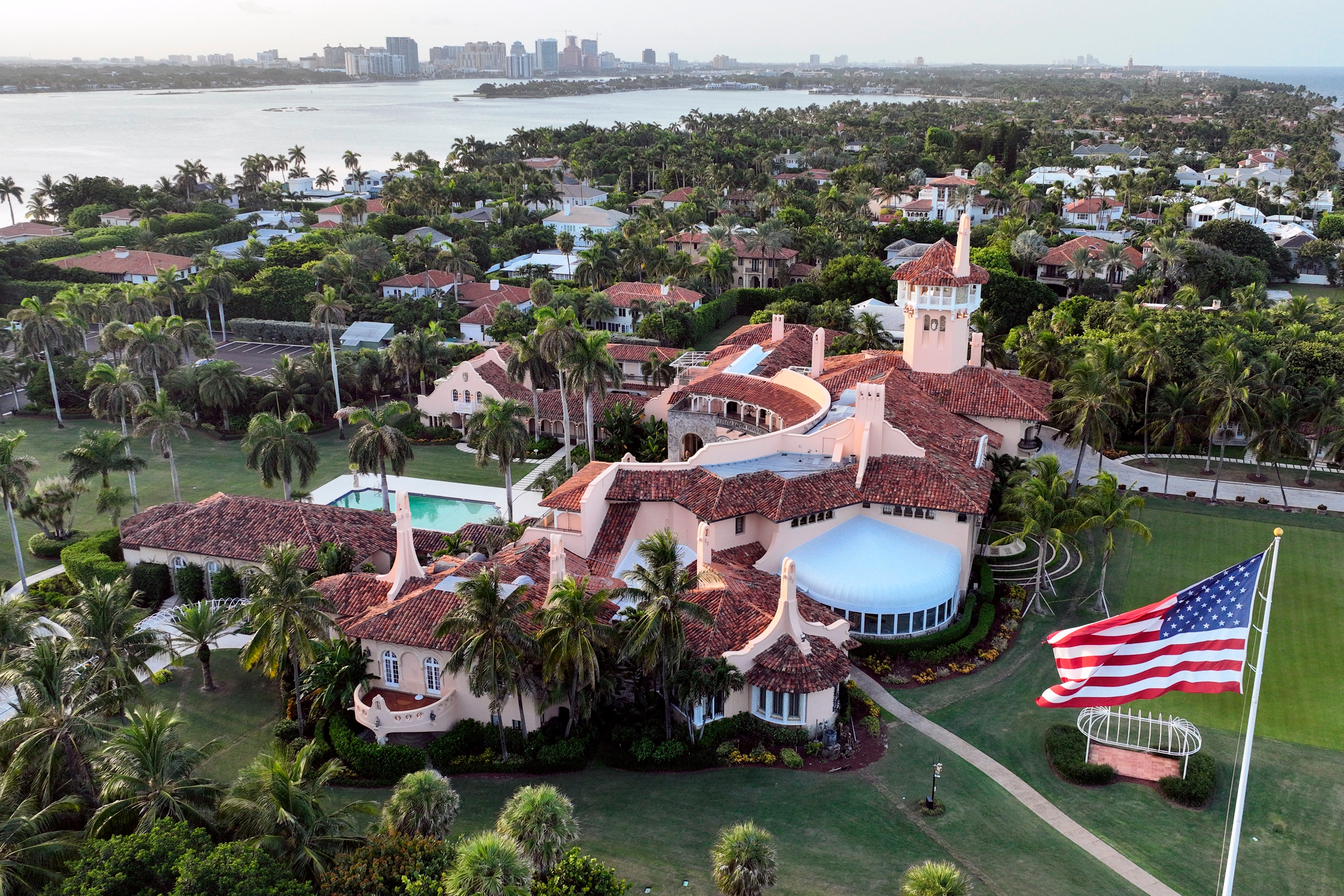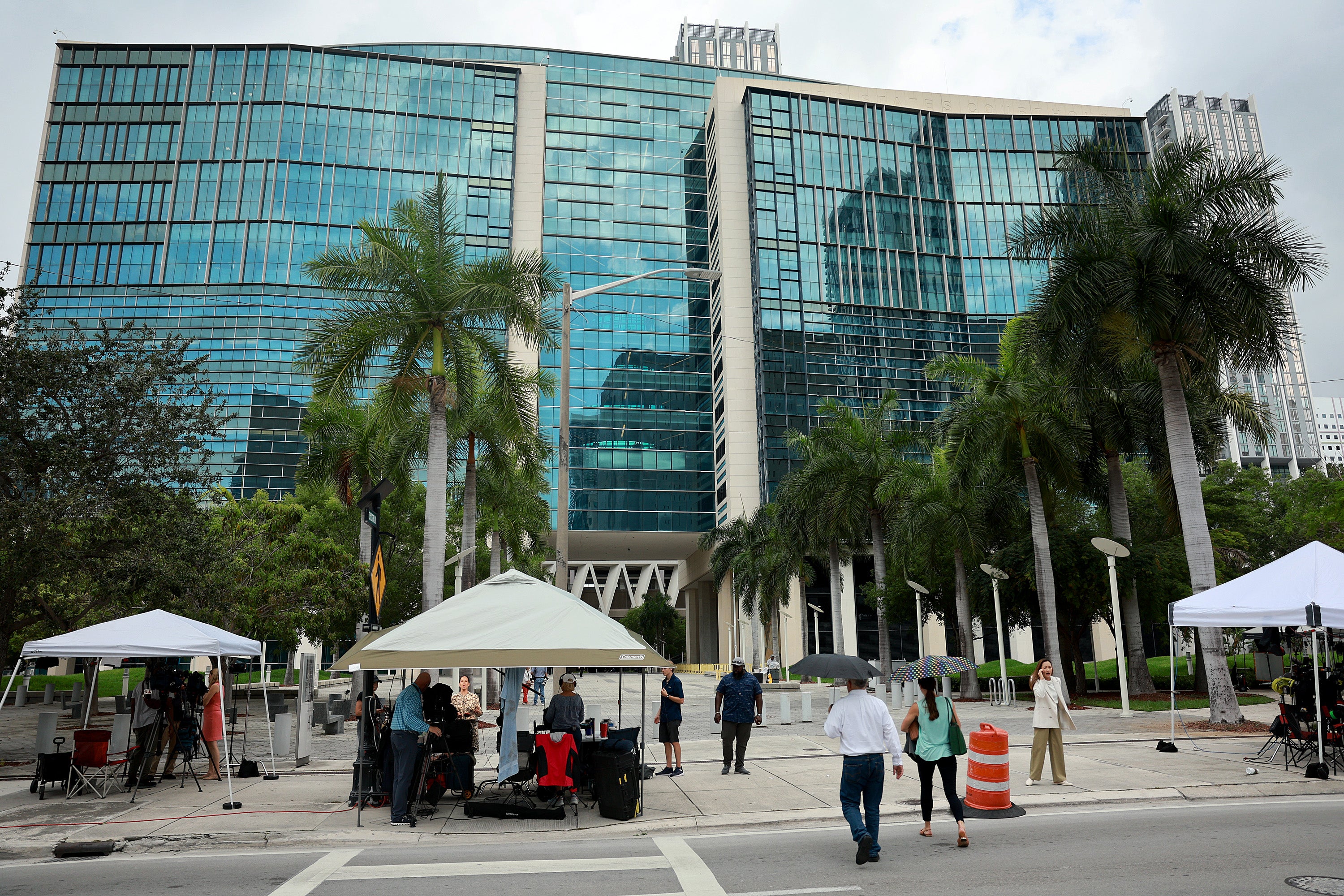
It was anticipated that a federal investigation into Donald Trump’s retention of top-secret documents months after he left the White House would result in charges in Washington DC.
But the damning 37-count indictment, with more than two dozen counts of illegally withholding classified documents under the Espionage Act, was filed on 8 June in US District Court in Florida, his primary residence and the location of his notorious Mar-a-Lago resort property, where mounds of boxes with sensitive government documents were discovered by federal law enforcement.
Photographs in an unsealed indictment released on 9 June showed stacks of them on a ballroom stage and gilded bathroom with a chandelier. Interviews with witnesses and transcripts of conversations in the sweeping indictment appear to show a depth of coordination among Mr Trump, his aides and attorneys to bring them to the property and, later, conceal them from law enforcement.
So it makes sense that prosecutors would charge him and his associate Walt Nauta in Florida. But determining the venue for a case against the former president, or any defendant, isn’t necessarily a straightforward one.
“It really could make a huge difference. The jury pool is different. The judges are different,” according to former assistant US Attorney Andrew Weissmann, speaking to MSNBC.
“Also, DC is a location where the court is very used to dealing with classified information. There’s an expertise there. So in terms of speed, getting this case to trial, the venue matters,” he added.
The Republican former president also has repeatedly rejected charges and investigations against him in several jurisdiction as political “witch hunts,” pointing to the Democratic majorities in New York City – where was found liable for sexual abuse, hit with a $250m lawsuit from the state attorney general, and criminally charged with more than 30 counts of falsifying business records – and Atlanta, where his efforts to subvert the outcome of the 2020 presidential election are expected to result in charges this summer.
Mr Trump won the state of Florida in 2016 and 2020, though he lost the county of Miami-Dade, where he is facing a federal indictment.
A form attached to the indictment also noted that the case was filed in the West Palm Beach court division, suggesting that a prospective jury pool may be drawn from there.
Voters in Palm Beach County have reliably voted for Democratic presidential candidates, but Republican Governor Ron DeSantis won 51 per cent of the county vote last year.
Mr DeSantis – Mr Trump’s rival for the 2024 Republican nomination for president – said in a statement after news of the indictment that he “will bring accountability to the [US Department of Justice], excise political bias and end weaponization once and for all” but stopped short of saying he would do anything to intervene.
“The fact that this is being charged in Florida is enormously significant,” according to CNN legal analyst Elie Honig. “Legally, I think it’s the right move by [the Justice Department], because they’re going to avoid a messy question about venue.”
Subpoenas may have been issued from Washington DC, but courts have upheld that the venue must be tied to where the unlawful conduct was committed.
Florida may ultimately be “less advantageous” for federal prosecutors and the Justice Department in a case dealing with classified documents and the aftermath of a presidential administration, typically the purview of Washington courts, but the state is a “legally a less risky venue at this juncture,” according to Mr Weissmann and Ryan Goodman.

“Whatever legal and factual arguments might support venue in Washington DC, the consequences of getting that calculus wrong, is an unknown variable that will counsel in favor of caution on the part of the [Justice Department],” they wrote.
Prosecutors also likely do not want to “risk spending the first year fighting over venue,” former federal prosecutor Randall D Eliason told The Washington Post.
For now, Mr Trump’s case will be handled by a federal judge he appointed to the bench in 2020 – and who already has delivered controversial rulings in the investigation that were rejected by an appeals court.
US District Judge Aileen Cannon is scheduled to preside over his federal court case in Miami.
Last year, Judge Cannon appointed a “special master” to review materials seized by federal law enforcement and restricted the FBI from using those documents as part of the investigation until she completed a review, effectively freezing the Justice Department probe.

That order was ultimately thrown out entirely by a three-judge panel at a federal appeals court, which sharply criticised the judge’s actions and stressed that a court cannot simply “write a rule that allows any subject of a search warrant to block government investigations after the execution of the warrant” or “write a rule that allows only former presidents to do so.”
If she does not recuse herself from the case and she remains a trial judge, she could play a potentially critical role in the case’s development, including whether to set a trial before or after presidential primary elections and the general election in 2024, as Mr Trump seeks the Republican nomination for president.
He already is scheduled to return to Manhattan Criminal Court on 25 March – days after voting begins in primary states. A trial in a fraud lawsuit targeting Mr Trump, his adult children and his business entities is slated to begin in October.







